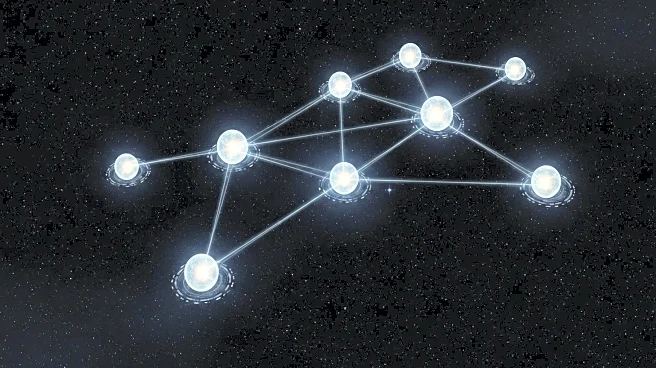What's Happening?
Astrolight, a Lithuanian startup, is advancing its plans to establish a secure communications network in response to increasing satellite interference incidents. Maj. Gen. Paul Tedman of the UK Space Command has reported weekly Russian attempts to jam UK satellites, prompting European governments to invest in more robust networks and counterspace capabilities. Astrolight aims to develop optical communications technologies, including optical ground stations and laser terminals for intersatellite links, to enhance secure communications for both commercial and government satellite operators. The company has raised €2.8 million in seed funding and plans to deploy its first optical ground station in Greenland next year, with further developments expected by 2027.
Why It's Important?
The development of secure communications networks is crucial as satellite interference poses significant risks to national security and commercial operations. Astrolight's initiative addresses the growing demand for reliable communication technologies that can circumvent the limitations of radio frequency links, such as data rate constraints and spectrum availability. By creating dual-use technology, Astrolight aims to integrate its solutions with both military and commercial satellites, enhancing security and reducing interference issues. This advancement could benefit industries reliant on satellite communications, including defense, telecommunications, and maritime operations, by providing more secure and efficient communication channels.
What's Next?
Astrolight plans to deploy its first optical ground station in Greenland by next year, marking a significant step in its network development. The company anticipates demonstrating its first payloads for intersatellite links by 2027. As the demand for secure communications technology grows, Astrolight's progress may influence other startups and established companies to invest in similar technologies. The success of Astrolight's network could lead to broader adoption of optical communications, potentially reshaping the landscape of satellite communications and enhancing security measures against interference.
Beyond the Headlines
The rise in satellite interference highlights the geopolitical tensions affecting space operations. As countries invest in counterspace capabilities, the ethical implications of space militarization become more pronounced. Astrolight's focus on dual-use technology reflects a trend towards integrating commercial innovations with military applications, raising questions about the balance between technological advancement and security concerns. The long-term impact of these developments may include shifts in international space policy and increased collaboration between governments and private companies to address security challenges.











